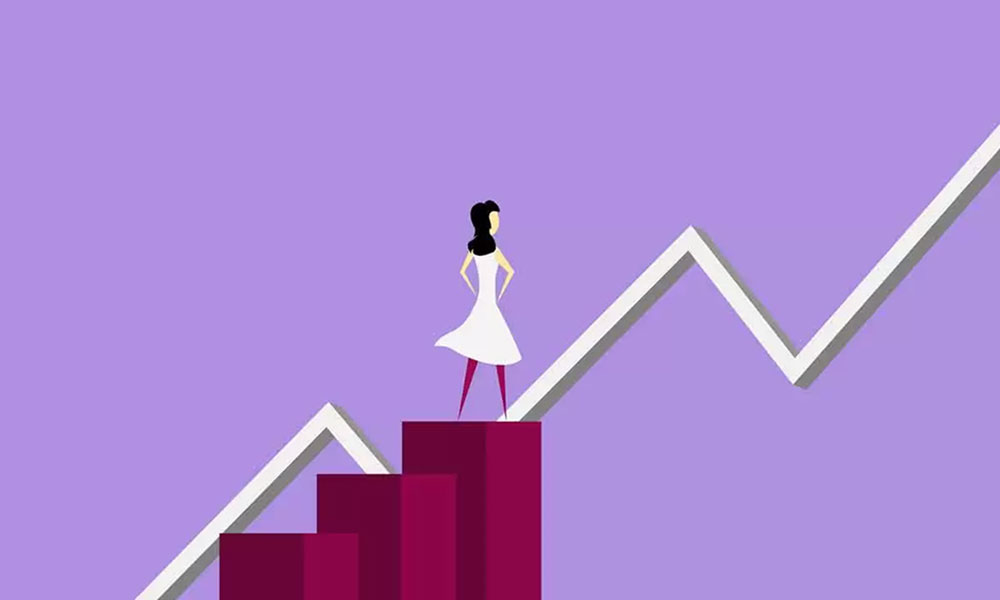Hi, it’s your Money Mavens, and this is of interest to you…
Inflation is rising past a 40-year high. We’re all feeling the difference with grocery bills and gas prices.
In response, the Fed is raising interest rates, also called rate hikes, that are tied to the Fed Funds Rate.
This is the first time the Fed increased the Fed Funds Rate in three years.
In March, the Fed increased the Fed Funds Rate by 0.25%, in May they bumped it up by another 0.5%, and most recently in June they increased the Fed Funds Rate by 0.75%.
Unfortunately, this won’t be the last time this year that rates increase.
The Fed is expected to keep bumping up rates to stave off rising inflation through the rest of 2022.
The Fed Funds Rate doesn’t directly set our consumer interest rates, the rates we’re used to paying for credit cards, loans, and other everyday purchases.
However, it does signal that rising consumer interest rates are on the horizon.
The Fed uses these rate adjustments as a way to ‘cool off’ inflation.
Now, we can get into the technical details about how interest rates interact with the Fed Funds Rate, but can we talk about what this really means?
How do rising interest rates impact your finances?
Because even if you’re not that affected by interest rates right now, we’re all affected by headlines.
By stock market tickers bleeding red.
By social media trends about #recession and #inflation.
By friends, family members, even people we’ve never even met throwing out scary-sounding terms like “the economy’s crashing” or “we’re heading into a recession!”
That’s why you’re reading this – you want to know what you need to be doing now to protect your money.
1. Get a big-picture view of your Financial ecosystem.
Knowledge is one of the most effective ways of keeping fear in check.
Start by assessing your accounts and finances to give you a sense of where you are:
- Do you have 3-6 months of savings as a “Curveball” account or emergency fund?
- How is your debt level?
- Are there any necessary big-ticket expenses you need to pay for in the next 12 months? If so, how are you prepared to pay?
You need to get a clear picture of your current financial situation so you know where you stand right now.
2. If you’re going to go into debt, focus on good debt.
Looking to buy a home? Focus on fixed-rates as opposed to variable-rate options if possible.
A variable interest rate may look attractive with the initial lower payment period, but it’s riskier because the rate can increase over time.
This also goes for home-equity lines of credit (HELOC) and credit cards.
If you can, try to prioritize paying off balances on those faster to avoid higher rates in the future.
You may also want to consider slightly tweaking your budget to free up additional cash to use to pay for expenses instead of charging your lines of credit.
If you were planning on doing any home renovation projects, you may want to postpone these projects.
3. Maintain a higher credit score.
Borrowed money costs more today. Because of this, prioritize doing what you can to have the best credit score possible.
For example, focus on paying off your credit cards every month and try to reduce the overall amount (often known as your “Credit Utilization” rate) of borrowed money you have.
These are two of the most influential factors of your credit score in terms of how it’s calculated.
4. Shop your everyday expenses.
Whether it’s finding a bank with a better interest rate or looking for a mortgage to purchase a new home, shopping for the best rate is crucial, especially in a rising rate environment.
Mortgage rates, especially, have increased to levels we haven’t seen since 2011.
The average 30-year fixed rate mortgage just crossed 5.90% as of June 28th (Source). This is a 35-point increase in two weeks’ time.
That translates to thousands of dollars in interest added to the total paydown of the mortgage in two calendar weeks if you waited two weeks to lock in your mortgage rate.
This is where due diligence is essential to explore your financing options and get multiple quotes from lenders.
5. Keep saving!
Prioritizing your savings goals and hitting your saving targets is important regardless of the interest rate environment.
You want to maintain that muscle of saving.
It’s also prudent to have extra cash set aside for emergencies or any unplanned expenses.
6. Appreciate your situation.
If you find yourself getting very anxious about inflation, we recommend keeping a good perspective.
You likely have a good job or business that empowers you to live an amazing life.
You likely have good to amazing health that helps you stay focused on what matters.
There are people who care about seeing you win and grow in life (including us, your friendly neighborhood Money Mavens!).
It’s easy to lose sight of all the good things in life when negativity starts to dominate the headlines.
The good news is this isn’t the first recession you’ve experienced – and we will stick together through this and celebrate the amazing moments in life.
So, if you’re worried about what inflation and interest rates may mean for your money, we get it. Take these steps to help insulate yourself as we adjust to life with higher interest rates.
You’re stronger than you may realize and we are so excited to be with you on this journey.
To your prosperity,
Your HWM Money Mavens





